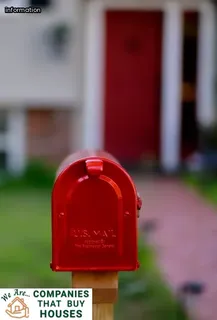A South Carolina Quitclaim Deed is a legal document used to transfer ownership of real estate from one person to another. It is commonly used when transferring real estate between family members, such as in the case of a divorce or inheritance.
This type of deed does not provide any warranties or guarantee that the title being transferred is free from claims and liens. The grantor (person giving up their interest) must sign the deed before it can be recorded with the county register of deeds office.
The grantee (person receiving the interest) must also sign, though they do not need to be present at the time of recording. After recording, a certified copy should be sent to both parties involved in the transaction.
It is important to note that a quitclaim deed only transfers the rights that the grantor has in a property; it does not guarantee those rights are valid or enforceable.

A South Carolina Quitclaim Deed is an efficient and cost-effective way to transfer real estate ownership, allowing individuals to quickly and easily transfer title to property. The advantages of using this type of deed are clear: it is a straightforward process that involves minimal paperwork.
Additionally, because the grantor makes no warranties or guarantees about the condition of the property, both parties can be protected in the event of any unforeseen issues with the title. Unfortunately, there are some drawbacks as well - such as being unable to guarantee that the recipient has good title or that there aren’t any liens against the property.
Additionally, since quitclaims don’t provide concessions for taxes or debts associated with the property, those must be addressed before transferring ownership. While a South Carolina Quitclaim Deed may seem attractive for its simplicity and cost effectiveness, it is important to consider all aspects before deciding if it best meets your needs.
There are several different types of deeds that can be used when transferring a home title, and understanding their differences is important. A warranty deed is often seen as the most secure type of deed because it offers the grantee some protection from any defects in the title.
This type of deed offers a guarantee from the grantor to the grantee that there are no other claims on the property, such as liens or easements. A special warranty deed also provides some protection, but only against issues that occurred during the time period when the current owner owned the property.
On the other hand, a quitclaim deed does not offer any type of protection since it simply transfers whatever interest the grantor has in the property and makes no guarantees about its condition. In South Carolina, there is a specific quitclaim form that must be completed accurately in order to legally transfer ownership of a home.
All parties involved must sign this document and have it notarized before filing it with the county clerk's office, which will then update public records to reflect the new ownership.

A South Carolina Quitclaim Deed is a legal document that is used to transfer ownership of property from one person to another. It is often used when transferring property from one family member to another, when a couple gets divorced and needs to divide their assets, or when a homeowner wants to add an individual's name to the deed.
The Quitclaim Deed is also widely used in estate planning, where it can be used to transfer real estate between generations. Additionally, it may be utilized in the event of a death in order for the deceased's heirs or beneficiaries to gain ownership of the property.
This type of deed makes it possible for someone who has previously owned property to give up their rights and interest in the property with no guarantee that they are conveying clear title.
Completing a South Carolina Quit Claim Deed (SCQCD) is a legal process to transfer ownership of real estate. In order to establish a legally-binding SCQCD, there are certain requirements that must be met.
First, the deed must be signed by all parties involved and notarized in front of two witnesses. Secondly, the deed must also include information about the property such as its address, county, and parcel number; as well as details about the buyer and seller such as their names and addresses.
Finally, the deed must include a legal description of the property which can typically be found on prior deeds or other documents related to your home's sale history. In addition to these steps, it is important to have an experienced real estate attorney review the deed prior to filing it with the county recorder's office in order to ensure it meets all legal requirements.

Preparing and executing a valid South Carolina Quitclaim Deed for your home is a straightforward process that does not require the assistance of an attorney. To complete a Quitclaim Deed, all parties must be identified and the deed completed in accordance with South Carolina law.
Begin by identifying the grantor, grantee, and property description on the deed. The grantor is the person who is giving up their claim or interest in the property, while the grantee is receiving title.
Next, provide a detailed description of the real estate being transferred in the body of the document. This should include legal details such as lot size and county address.
All parties should also sign and date their signatures in front of two witnesses who then must sign and date as well. Finally, submit to your local recording office according to state regulations so that it can become an official document.
Completing a South Carolina Quitclaim Deed Form can be a relatively straightforward process, but it is important to get it right the first time. It's best to understand the steps involved before beginning, so you can ensure that your deed is legally valid and meets all necessary requirements.
To begin, obtain the correct form from your local county recorder's office or online. Once you have the form, make sure to thoroughly read it before completing any of the information.
Then, fill in all parties involved in the transfer on the form; these include both grantor and grantee names and addresses. Next, provide a legal description of your property and state specifically what rights are being transferred with this deed.
The next step is to sign and date the document in front of two witnesses who also need to sign and provide their addresses. Finally, make sure to submit two copies of this Quitclaim Deed to your local county recorder's office for recording purposes.
Remember that although this process may seem tedious at times, taking these steps will help finalize your property transfer properly and with certainty.

A South Carolina Quitclaim Deed is a useful tool for transferring property from one party to another, however it is important to understand the limitations of this document. A Quitclaim Deed does not provide any warranties or guarantees that the transferor holds title to the property being transferred and does not guarantee that there are no other claims on the property.
While this document can be used as evidence that a transfer took place, it cannot be used to prove the validity of title or the absence of liens and encumbrances on the property. It is therefore essential to conduct due diligence prior to completing a Quitclaim Deed in South Carolina in order to ensure that all parties involved have clear title to the property being transferred.
Additionally, it is important to consider whether using a Quitclaim Deed rather than another type of deed is appropriate for a given situation as each type of deed has its own advantages and disadvantages depending upon local laws and regulations. Furthermore, any deed must be properly executed according to state law in order for it to be legally binding.
When you are considering creating a South Carolina Quitclaim Deed for your home, it may be beneficial to seek professional advice. There are many advantages to consulting a lawyer or other legal professional who is an expert in real estate law and property transfer.
An experienced attorney can provide insight into the process and help ensure that the document is properly completed and filed with the appropriate county office. It is important to understand all of the necessary paperwork, forms, and filing fees associated with a quitclaim deed in South Carolina before beginning the process.
A knowledgeable legal advisor can also explain any potential issues or complications that may arise during the completion of the deed. They can even help you determine if there are any additional documents or steps needed for your particular situation.
Taking time to get expert advice on creating a South Carolina Quitclaim Deed prior to starting the process can save you time and money in the long run.

When filing a South Carolina Quitclaim Deed form, it is important to include all the necessary documentation. This should include the completed Quitclaim Deed Form with all of the information filled in, including names and addresses of the grantor(s) and grantee(s).
You must also provide a valid South Carolina State ID for each grantor, as well as proof of payment of any applicable taxes or fees. Additionally, you will need to provide an affidavit signed by each grantor confirming that the deed has been voluntarily executed.
Finally, make sure to include a copy of your home's deed and any other relevant documents required by law.
When completing a South Carolina Quitclaim Deed for your home, it is important to use the correct language and format. Typical forms used for this purpose will include a legal description of the property, such as its address and parcel number, as well as information about the grantor and grantee.
The deed should also contain a statement of consideration or transfer amount that must be signed by both parties. Additionally, some counties may require other documents such as an affidavit of marriage or lien release to accompany the deed in order for it to be valid.
It is additionally important to ensure that all signatures are notarized and that the document is properly filed with the county clerk's office. All these steps should be followed in order to ensure that the South Carolina Quitclaim Deed is legally binding.

Finding resources, examples, and templates to create your own legal documents in South Carolina can be a daunting task. Fortunately, there are a number of online sources that provide everything needed to complete a South Carolina quit claim deed for your home.
The South Carolina Bar Association website is one of the best places to start since it provides an entire section devoted to residential real estate transactions. This page contains links to helpful publications such as the “South Carolina Quit Claim Deed Guide” which outlines all the necessary steps.
Additionally, this site offers various sample forms and templates that can be customized for individual needs. The South Carolina Department of Revenue’s website also provides useful information on how to complete the state’s quit claim deed filing process, as well as downloadable forms and instructions.
Finally, many popular online legal document providers offer free or low-cost quit claim deed forms specifically tailored for South Carolina residents.
When transferring ownership of a property in South Carolina with a Quit Claim deed, it is important to understand potential tax implications. Depending on the county in which the property is located, taxes may be due at the time of transfer.
It is especially important to be aware of any unpaid taxes that must be paid before the deed can be filed. After filing the deed, property taxes may also need to be paid annually or semi-annually.
Property owners can consult their local county assessor’s office for more information about due dates and payment amounts. Additionally, it is important to understand how homestead exemptions may affect property tax rates and liability.
Homestead exemptions are available at both state and federal levels and can provide significant tax savings for homeowners who qualify. Finally, if transferring ownership of a home between family members or close friends, it may be possible to avoid certain taxes altogether by filing an Affidavit of Gift with the county clerk’s office.

The role of the grantor and grantee in executing a South Carolina quit claim deed is very important. The grantor is the person who is transferring their interest in the property, while the grantee is the person who will be receiving that interest.
It’s important to properly identify both parties on the deed, which should be done by providing their full name and mailing address. Depending on local laws, all signers may also need to provide proof of identification such as a driver’s license or passport.
Once all parties have signed and dated the deed, it must then be notarized by two witnesses and submitted to the county clerk of court for recording. This process can take up to several weeks so it is important to plan ahead when completing a South Carolina Quit Claim Deed.
Both parties should also keep copies of the recorded deed for their records in case any future problems arise regarding ownership of the property.
In order to record a South Carolina quit claim deed with the County Clerk's Office, you must first ensure that all of your paperwork is in order and up-to-date. You'll need to provide a copy of the signed quit claim deed, as well as a completed cover sheet and an acceptable form of payment for the applicable recording fee.
Be sure to check with your local county clerk's office for more information about their specific required forms and fees. Once you have all of your documents ready, it's time to bring them to the county clerk's office where they will be reviewed and recorded.
Depending on the size of the area, this process can take anywhere from one business day to several weeks. After the deed has been recorded, you should receive a certified copy in the mail within a few weeks.
Following these steps will help make sure that your quit claim deed is properly recorded with the County Clerk's Office in South Carolina so that you can protect your home or property rights.

Completing a South Carolina Quit Claim Deed for your home involves filing fees and other costs associated with recording the deed. These fees vary by county, but they typically include an amount for the cost of recording the deed.
In addition, you may need to pay a transfer tax which is usually based on the sale price or market value of your property, depending on the county. It's important to note that some counties require a separate fee if you choose to record the deed electronically.
You may also need to pay additional fees if there are multiple owners listed on the deed or if you're transferring real estate between trusts. Ultimately, it's best to contact your local county recorder’s office for information about specific costs associated with recording a SC Quit Claim Deed in your area.
In South Carolina, a Quit Claim Deed is typically used to transfer property ownership from one person or entity to another. The process for terminating or revoking an existing Quit Claim Deed in South Carolina is relatively straightforward and involves the completion of certain steps.
First, the current holder of the deed needs to obtain a written revocation document. This document should include all pertinent information such as the parties involved, the date of property transfer, and any other relevant details.
Next, the revocation document must be signed by both parties and witnessed by two separate individuals who are not related to either party. Finally, this document must be filed with the appropriate county office in order to officially terminate the existing Quit Claim Deed.
While this process may seem intimidating at first, it is important to remember that following these steps can help ensure that all parties involved have their rights protected and that any future disputes regarding property ownership can be avoided.

Failing to abide by the terms of your South Carolina quit claim deed can have serious consequences, as it will be an indication that you are not holding up your end of the agreement. A quit claim deed is a legal document that transfers ownership of a property from one person to another, and if the deed is not properly completed in accordance with South Carolina law, it could be deemed invalid.
Additionally, if payments aren't made on time or other terms of the agreement are violated, you may face legal action from the other party involved. If this happens and a court orders that the deed be revoked for failure to comply, both parties could suffer financial losses due to fines or repossession of the property.
It is important to understand all aspects of your South Carolina quit claim deed so that you can fulfill your obligations under it and avoid any potential losses or liabilities.
When it comes to filing a quit claim deed in South Carolina, many people wonder if they need an attorney. The answer is that, while not mandatory, having the assistance of an experienced attorney can be beneficial when completing a South Carolina Quit Claim Deed for your home.
An attorney is familiar with all the legal requirements and paperwork involved in filing a quit claim deed and can provide guidance throughout the process. Additionally, if there are any discrepancies or issues with the paperwork, having an experienced lawyer on your side can help quickly resolve them.
Ultimately, hiring an attorney gives you peace of mind and makes sure everything goes smoothly when filing a quit claim deed in South Carolina.

Filing a quit claim deed in South Carolina is relatively inexpensive. The fee to file the quit claim deed is $10, and can be paid at the county register of deeds office when you submit the document.
Depending on your county, there may also be a fee for recording the deed in the public record; this cost varies from county to county. If you are using a lawyer or title company to process the quit claim deed, they will typically include these fees in their service charge.
When filing a quit claim deed in South Carolina, it's important to make sure all parties involved are listed correctly and that all signatures are properly notarized.
A Quit Claim Deed is a legal document used to transfer ownership and title of real estate in South Carolina. The process requires the current owner (known as the Grantor) to provide the new owner (the Grantee) with a written document that describes the property and transfers title to it.
By signing and filing this deed, the Grantor makes a "quit claim" to any interest they may have in the property, thus transferring rights of ownership to the Grantee. In order for the transfer to be valid and legally binding, both parties must sign and notarize the deed.
It is also important that all of the information on the deed is accurate and up-to-date; otherwise, it can lead to complications with title companies or other legal issues. To complete a Quit Claim Deed in South Carolina, there are several steps you should follow: First, gather all relevant information about your property including an accurate description of its location, boundaries, size and lot number.
Second, prepare a document containing all of this information along with details about who will receive ownership of the property after it has been quitclaimed. Third, have both parties sign this document in front of a notary public or other witness.
Fourth, file your Quit Claim Deed at your local county recorder's office so that it can officially become part of public record. Following these steps will ensure that you complete a valid Quit Claim Deed in South Carolina and successfully transfer ownership of your home.
Transferring a property deed in South Carolina is relatively inexpensive, typically costing between $10 and $30. The actual cost of completing a South Carolina Quit Claim Deed will depend on the county you are filing in.
Generally speaking, the filing fee for a Quit Claim Deed is nominal, but may require additional fees if notarization or recording services are needed. It's important to note that if you are transferring ownership of your home to another party, additional taxes may apply including transfer taxes, capital gains taxes or other applicable local or state taxes.
Prior to completing a Quit Claim Deed, it's important to speak with an attorney to understand your legal rights and any liabilities associated with transferring ownership of your home.
A: To complete a Quit Claim Deed on a house in South Carolina, you must obtain the legal form and fill out all the required fields. The deed should include basic information such as the names of the parties involved, a legal description of the property, and the date of execution. You must also sign the document in front of a notary public or two witnesses. After signing, file the Quit Claim Deed with your county recorder’s office where it will become part of the public record. Depending on local laws and regulations, additional forms may need to be filed for tax purposes or to ensure proper transfer of title. Additionally, if desired, you may also create a Deed of Release along with your Quit Claim Deed to provide extra protection during property transfer.
A: To complete a Quit Claim Deed on a house in South Carolina, you will need to obtain the appropriate legal forms from your county clerk's office and have it signed by all parties involved. Once the deed is filled out, it must be notarized by a Notary Public and then filed with the county recorder's office.